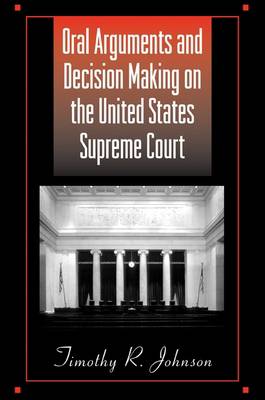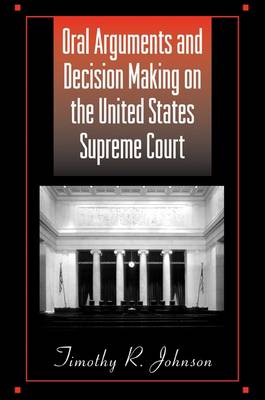
- Afhalen na 1 uur in een winkel met voorraad
- Gratis thuislevering in België vanaf € 30
- Ruim aanbod met 7 miljoen producten
- Afhalen na 1 uur in een winkel met voorraad
- Gratis thuislevering in België vanaf € 30
- Ruim aanbod met 7 miljoen producten
Oral Arguments and Decision Making on the United States Supreme Court
Timothy R JohnsonOmschrijving
How oral arguments influence the decisions of Supreme Court justices.
Timothy R. Johnson focuses on an all-too-often ignored aspect of the Supreme Court's decision-making process by providing a systematic explanation of how justices use oral arguments to make substantive legal and policy decisions. Using the arguments filed to the Court in legal briefs, oral argument transcripts, notes taken by Justice Lewis F. Powell during oral arguments, conference notes and internal memos of justices, and Court opinions, the book analyzes justices' behavior during these proceedings. The result is an impressive account demonstrating that justices use oral arguments to gather information regarding legal and policy options in a case, the preferences of competing political institutions and actors, and institutional rules that might affect the choices they make.
Specificaties
Betrokkenen
- Auteur(s):
- Uitgeverij:
Inhoud
- Aantal bladzijden:
- 192
- Taal:
- Engels
- Reeks:
Eigenschappen
- Productcode (EAN):
- 9780791461044
- Verschijningsdatum:
- 2/07/2011
- Uitvoering:
- Paperback
- Formaat:
- Trade paperback (VS)
- Afmetingen:
- 155 mm x 227 mm
- Gewicht:
- 267 g

Alleen bij Standaard Boekhandel
Beoordelingen
We publiceren alleen reviews die voldoen aan de voorwaarden voor reviews. Bekijk onze voorwaarden voor reviews.











